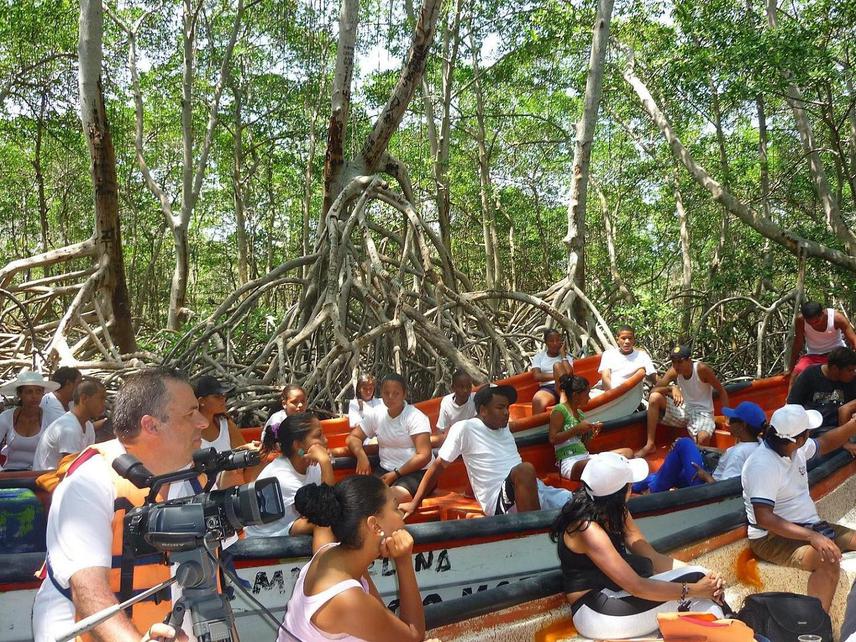Jaime Bolaños-Jiménez
Other projects
16 Oct 2009
Educating Educators on the Knowledge and Conservation of the Marine Habitat and Species in Ocumare de la Costa de Oro
This project aims to empower local communities and stakeholders to responsibly offer high quality whale watching tours.

Ecotourism and Whale watching have grown steadily during the last years. Accordingly, concerns about the welfare of natural populations have also increased. In order to ensure the industry´s sustainability, a number of guidelines and regulations have been outlined by researchers, stakeholders and resource managers. On the other side, scientific research performed between 1996-2007 have demonstrated that the State of Aragua, in the central coast of Venezuela, counts on potential for development of whale watching activities.
Target species include the Atlantic spotted (Stenella frontalis) and the bottlenose (Tursiops truncatus) dolphins and Bryde’s whales (Balaenoptera edeni). The encounter rate with cetaceans is approximately 70%. On the basis of this scientific foundation and the guidelines in the “National Strategy of Biological Diversity and its Action Plan”, it is expected that -in the short term- whale watching in this region is going to start at a commercial level. For this program to be sustainable, participation of local community is paramount. Local hosts, naturalist guides, tour operators and stakeholders need to count on skills, knowledge and abilities to be able to offer “high quality whale watching” to tourists.
The purpose of the present project is to systematically empower local communities and stakeholders for responsible development of whale watching and management of their natural resources. A series of training seminars on the value and importance on local ecosystems and cetacean species, guidelines for responsible whale watching, species identification, good commercial practices, legal aspects and code of conduct, leadership and field trips will be designed and offered to: 1) educators, 2) stakeholders and entrepreneurs and 3) students and professionals in universities of the State of Aragua. On this basis and with active participation of trained educators, sensitizing activities and ecological games will be designed and presented to local children. Finally, in order to guarantee the scientific monitoring on the status of cetacean populations and the effect of this activity on them, a field research project will be re-started aimed to improve the knowledge about local cetaceans.